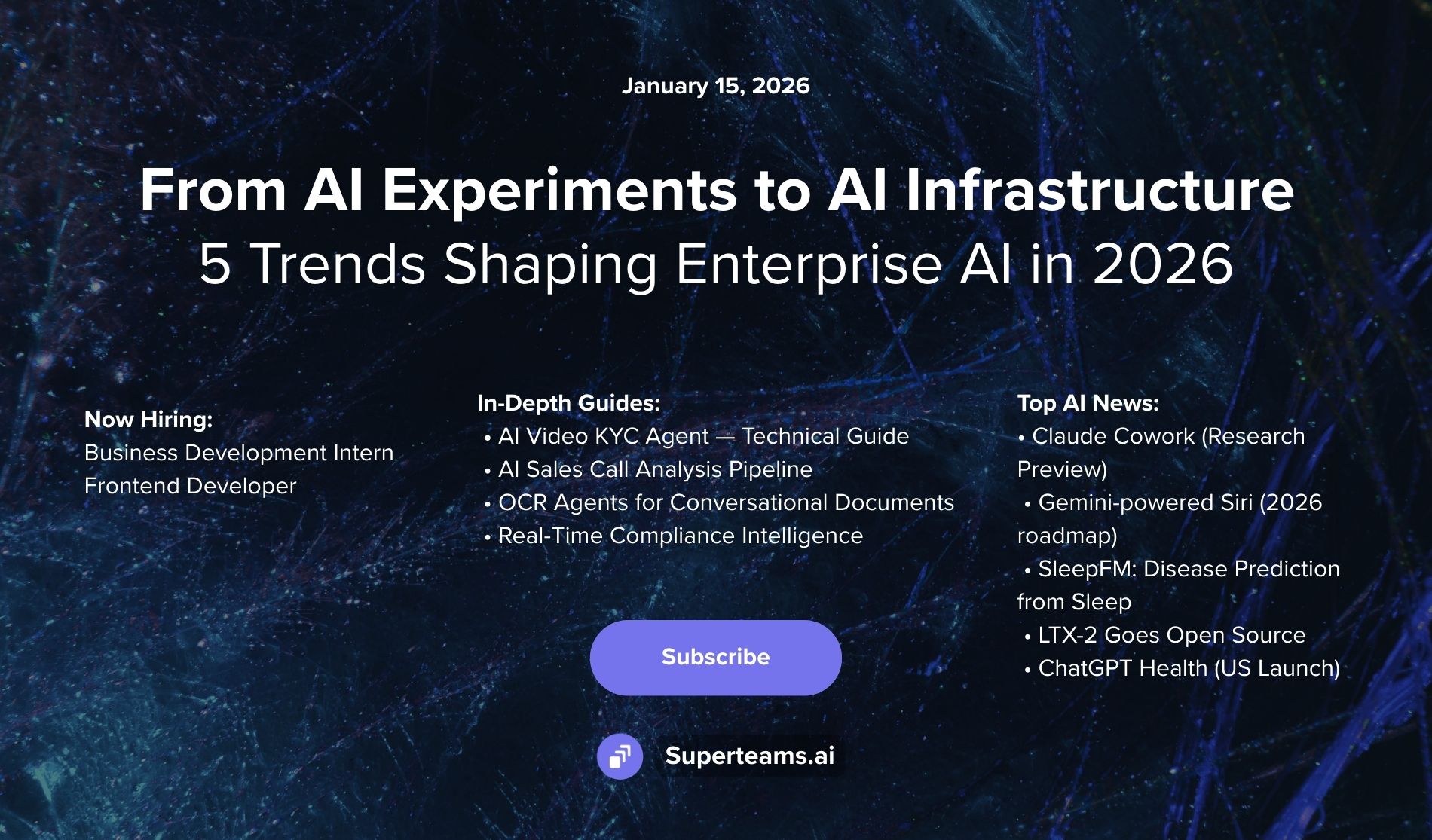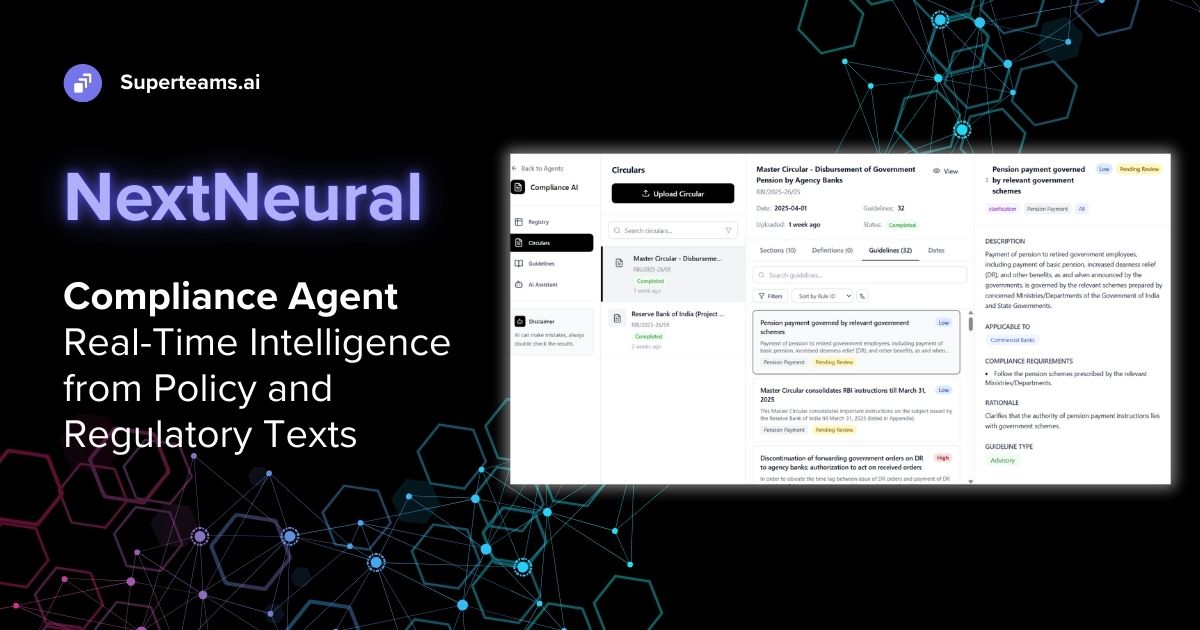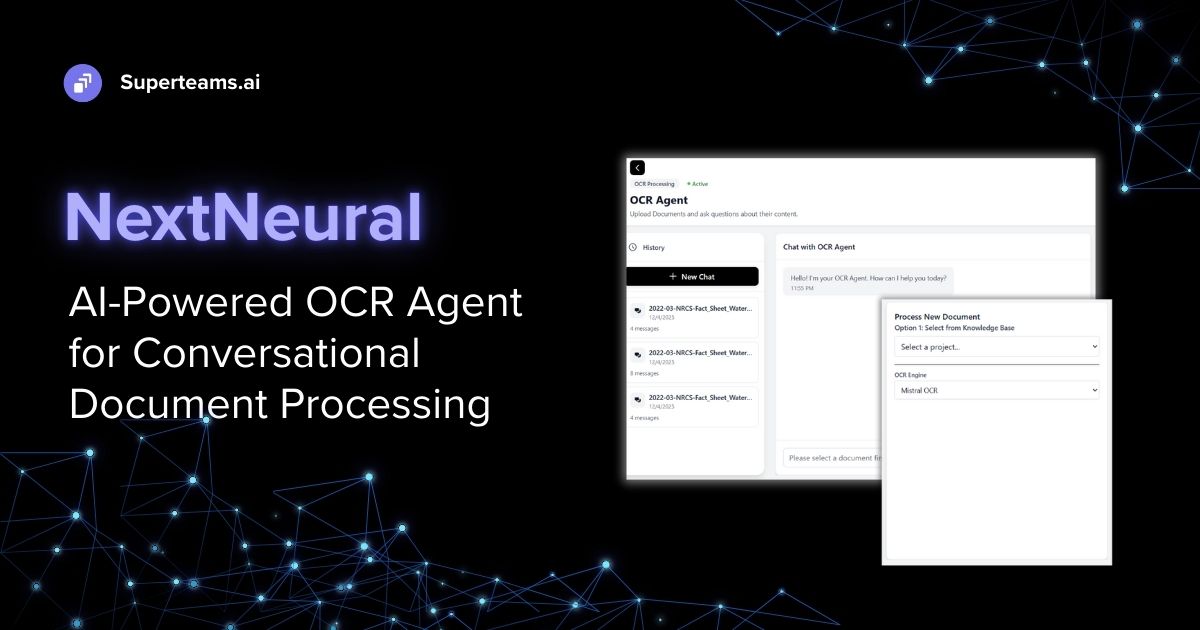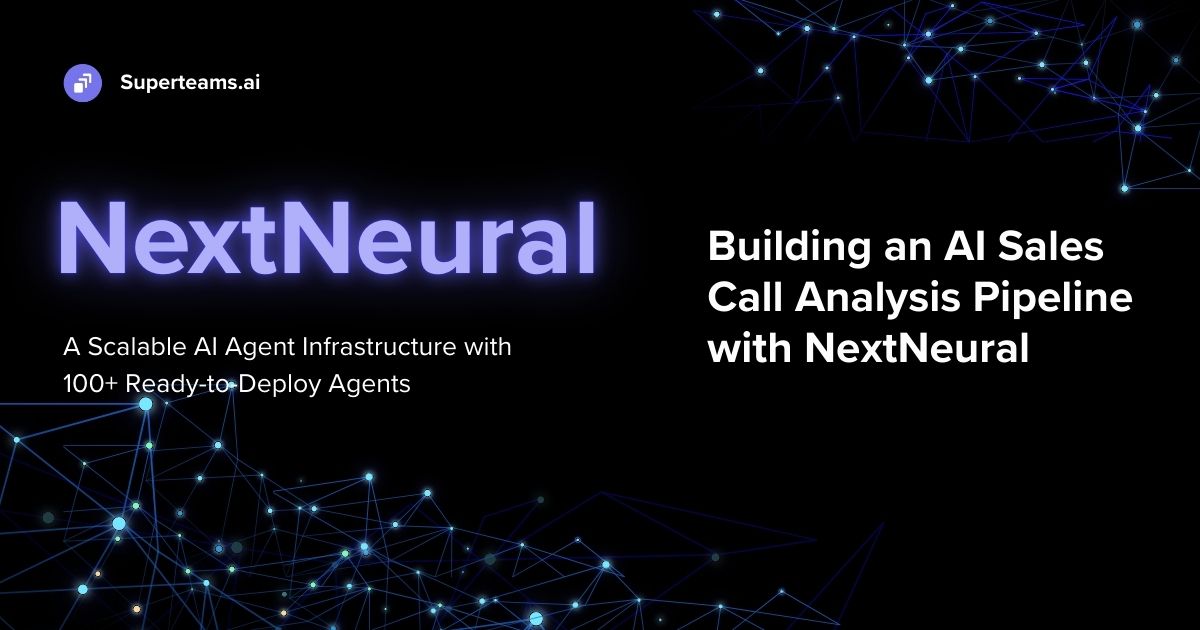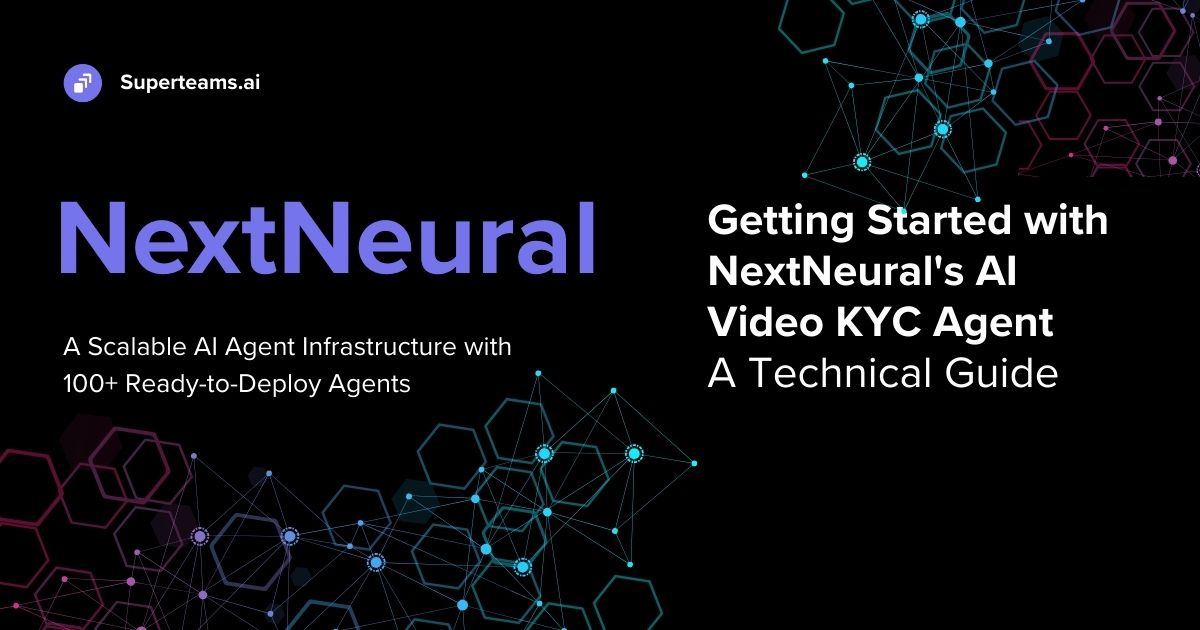Why AI Upskilling is Non-Negotiable in 2026 and Beyond
This blog discusses why every business needs to prioritize AI upskilling today and how Superteams.ai can help.
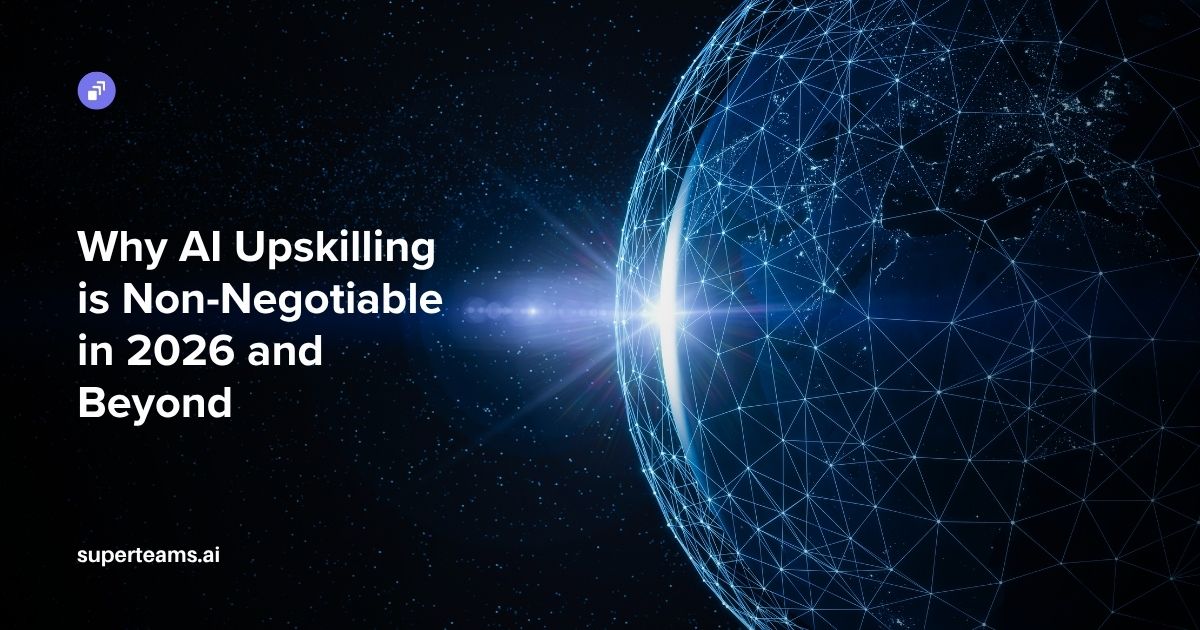
Picture this: It's 2027, and India needs 2.3 million AI-skilled professionals to keep its tech engine running. The problem? We're looking at a shortfall of over a million skilled workers, according to Bain & Company's research. That's a huge skills gap.
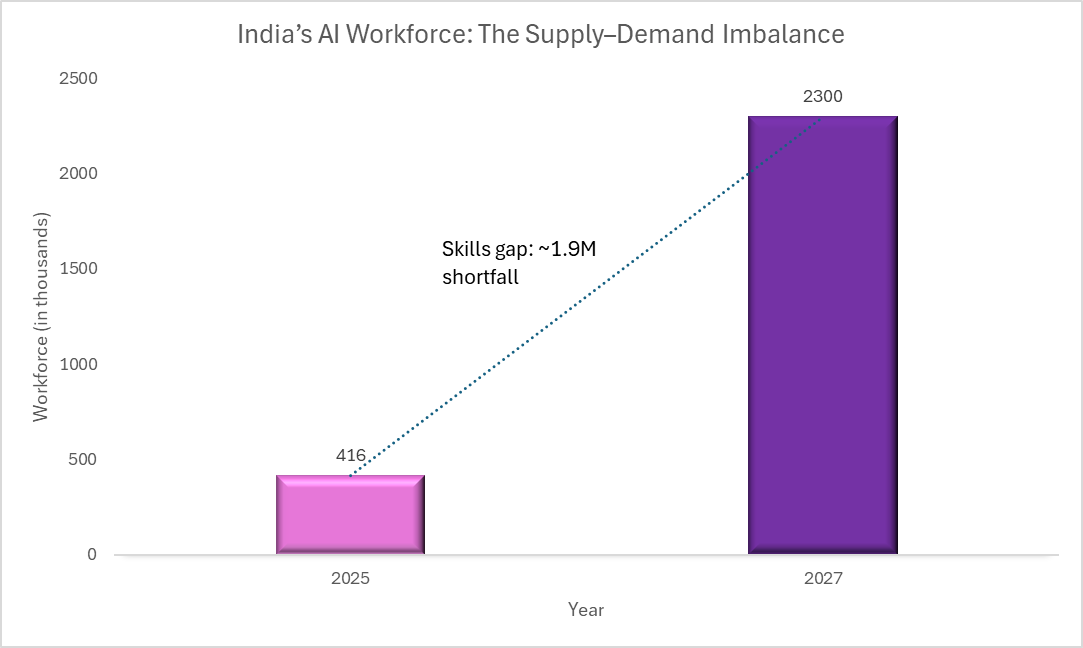
Right now, India has around 4,16,000 people working in AI and data science, but there's demand for another 2,13,000. And that's just today. By 2027, the demand will more than double.
We need to train and deploy a million workers in roughly two years. That's training 1,400 people every single day until 2027.
AI-related job postings have exploded by 21% annually since 2019, while compensation for these roles has risen by 11% each year. The market is seeking talent and it's willing to pay for it.
Is AI Upskilling Really Necessary?
Here's where it gets interesting for anyone sitting on the fence about AI upskilling. AI skills could boost salaries of workers in India by more than 54%. That's a jump that could transform careers overnight.
In 2025, India's tech sector witnessed a 20% growth in jobs, driven by a 75% surge in demand for roles in AI, cybersecurity, and cloud computing. The wave is building—and those without AI skills are watching from the sidelines. While general salaries across India are projected to rise by 9% in 2026, AI professionals are looking at a much higher growth.
Why Everyone's Struggling to Find Talent
The truth is, over nine in ten employers in India prioritize hiring AI-skilled talent, but 79% struggle to find the AI talent they need. This isn't a supply problem in the traditional sense for India churns out millions of engineering graduates every year. But there's a massive disconnect between what universities teach and what the industry needs. By the time curriculum committees approve a new AI course, the technology has already evolved three times over.
How does a business bridge the gap between academic learning and industry requirements?
Therefore, companies are continuously hunting for professionals who understand machine learning, natural language processing, retrieval-augmented generation, knowledge graphs, computer vision, and can actually deploy these technologies in real-world scenarios. They're not finding them because traditional education systems simply can't keep pace.
And 2027 is a critical year because that's when India's AI ambitions collide with ground reality. India's AI market is projected to reach $17 billion by 2027, growing annually by 25-35%.
That kind of explosive growth requires an army of skilled professionals: data scientists, ML engineers, AI architects, prompt engineers, and AI product managers. Without them, that $17 billion opportunity could slip through our fingers to countries that invested in their workforce early. Companies that wait until mid or late 2026 to start serious upskilling initiatives will already be two years behind. The time to act is now, not next quarter, not next year.
What This Means for Businesses
If you're reading this and thinking "AI isn't really my field," think again. AI is seeping into every sector imaginable: healthcare, finance, agriculture, manufacturing, retail, entertainment. It's not about just tech jobs; it's transforming how every job gets done.
The accountant who can use AI to automate reconciliations? More valuable. The marketer who understands how to leverage AI for customer segmentation? Indispensable. The HR professional who can use AI for talent analytics? Suddenly strategic.
The silver lining is that demand outpacing supply means opportunity. For professionals willing to invest time in upskilling, the next two years represent a golden window. For the barrier to entry, while not trivial, is more accessible than ever before. One doesn't need a PhD from Stanford. One needs curiosity, commitment, and the willingness to learn continuously.
What Smart Organizations Are Doing
While some companies are still debating whether to invest in AI, India's smartest organizations have already made their move—and the results speak for themselves.
Wipro committed $1 billion to train all 250,000 employees in AI over three years, recognizing that waiting for the "perfect" AI talent to walk through the door is a losing strategy. TCS has trained over 100,000 employees in AI and machine learning, while Infosys developed AI awareness programs for 270,000 staff members. These aren't small pilot programs; they're enterprise-wide transformations.
The message is clear: either one grows one’s own talent or gets left behind. External hiring alone cannot solve the million-worker gap. Organizations need to invest in upskilling their existing workforce: people who already understand the business, the customers, and the problems that need solving.
The Sectors Where AI Is Already Winning
Not all industries are moving at the same pace, but the early movers are seeing dramatic results.
AI has the potential to contribute $450-500 billion to India's economy by the end of 2025, according to reports by NASSCOM and the TeamLease Group.

Banking and Financial Services are leading the charge. From fraud detection to personalized banking experiences, AI is transforming how money moves and how risks are assessed. The sector's combination of data-rich operations and high regulatory standards makes it a natural fit for AI adoption.
Healthcare is experiencing its own AI revolution. With India's massive population and healthcare accessibility challenges, AI-powered diagnostics, telemedicine, and predictive health monitoring aren't just nice-to-haves—they're game-changers. Companies like Tata Elxsi are deploying AI tools for medical diagnostics and personalized patient experiences.
Manufacturing and Automotive sectors are leveraging AI for everything from predictive maintenance to autonomous systems. Manufacturing, particularly automotive and electronics, is showing strong AI maturity driven by the need for operational efficiency and quality control.
Retail and E-commerce are using AI to personalize customer experiences, optimize supply chains, and predict demand patterns. In a market as diverse and dynamic as India, AI's ability to process massive datasets and spot patterns is invaluable.
Telecom, Media, and Entertainment sectors are benefiting from AI-driven content recommendations, network optimization, and audience analytics. Digital-native business models in these sectors are accelerating AI maturity.
The common thread: these sectors aren't treating AI as a future possibility; they're deploying it today and seeing measurable ROI.
Bridging the Gap: From Awareness to Action
At Superteams.ai, we've designed hands-on AI workshops specifically for tech teams and management who need to move from AI-curious to AI-capable, fast. Whether your developers need to understand how to architect agentic AI systems, or your leadership team needs to grasp what's actually possible (and what's just hype), our workshops cut through the noise.
We work with cutting-edge AI patterns—from vector and graph RAG to multimodal reasoning and autonomous agent orchestration—giving your teams the practical knowledge they need to build production-ready AI solutions. Not just slides and theory, but actual code, real deployments, and frameworks you can take back and use immediately.
To learn more, speak to us.



